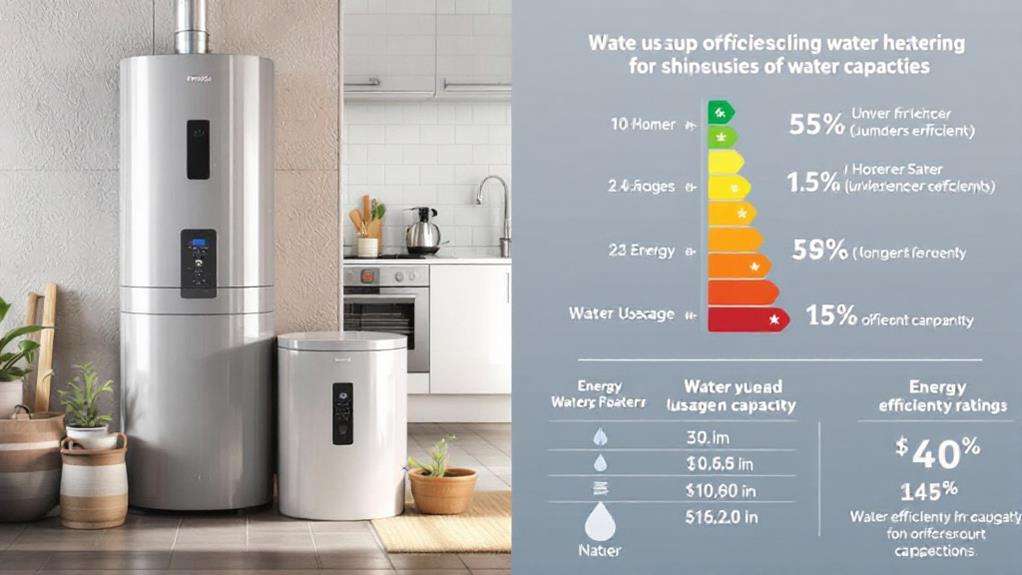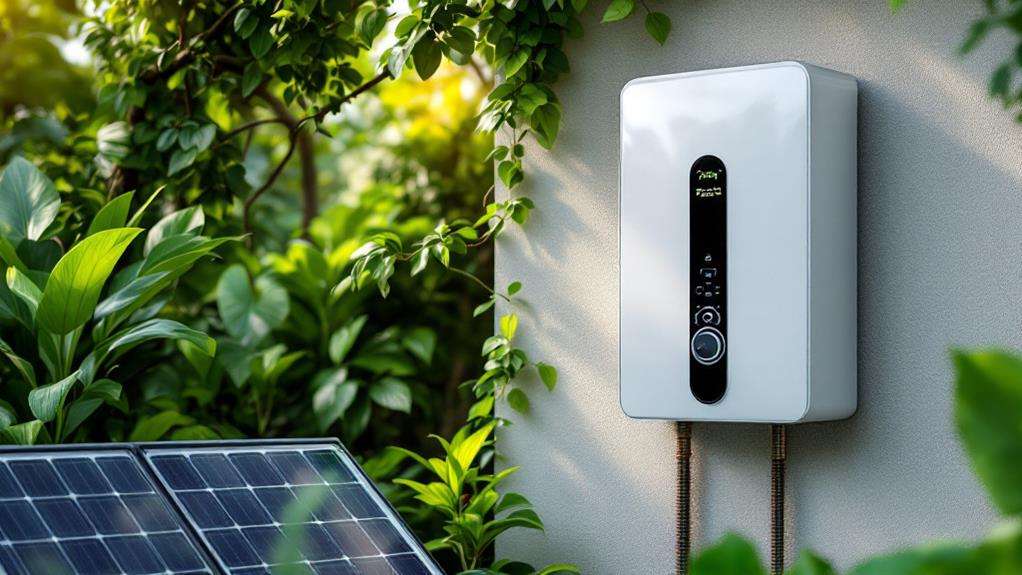How to Choose an Eco-Friendly Water Heater for Your Home
When choosing an eco-friendly water heater for your home, consider energy-efficient options like tankless or solar models. Look for high Energy Factor (EF) or Uniform Energy Factor (UEF) ratings, as well as ENERGY STAR® certifications, to ensure maximum efficiency. Determine the right tank size to match your household's hot water needs, and ensure the installation requirements align with your home's infrastructure. Evaluating upfront costs, operating expenses, and long-term value will help you select the most eco-friendly and cost-effective water heater for your unique situation. There's more to learn about the key factors to consider when investing in a sustainable water heating solution.
Key Takeaways
- Consider purchasing a tankless or solar water heater, as they are more energy-efficient and eco-friendly compared to traditional tank-style heaters.
- Look for water heaters with high Energy Factor (EF) or Uniform Energy Factor (UEF) ratings, as they indicate superior energy efficiency.
- Ensure the water heater's capacity matches your household's hot water needs to avoid energy waste from over-sizing.
- Evaluate the installation requirements, such as electrical or gas line compatibility, to ensure a smooth and safe installation.
- Research trusted brands and customer reviews to find a reliable, high-quality, and eco-friendly water heater that fits your budget and preferences.
Understanding Water Heater Types
When choosing an eco-friendly water heater for your home, it's essential to understand the different types available. Tank-style heaters, which store hot water, come in a variety of sizes to accommodate your household's needs. Tankless or on-demand heaters, on the other hand, heat water as it's needed, which can be more energy-efficient.
Regarding fuel source considerations, electric and gas-powered heaters are the most common options. Electric heaters tend to be more energy-efficient, but gas models may be more cost-effective to operate in some areas. Solar water heaters, which use the sun's energy to heat water, are also an eco-friendly choice, though they can be more expensive upfront.
When evaluating water heater types, consider factors like your home's size, your family's hot water usage, and your local utility costs. By understanding the available options and their environmental impact, you can make an informed decision that aligns with your goals for an eco-friendly, energy-efficient home.
Evaluating Energy Efficiency Ratings
One key factor to consider when choosing an eco-friendly water heater is its energy efficiency rating. Comparing energy efficiency metrics, like the Energy Factor (EF) or Uniform Energy Factor (UEF), can help you determine a heater's overall efficiency. Generally, the higher the EF or UEF, the more energy-efficient the unit.
Analyzing energy efficiency certifications is also crucial. Look for the ENERGY STAR® label, which indicates the heater meets strict energy efficiency guidelines. Other certifications to consider include:
- ENERGY GUIDE label, which provides estimated annual operating costs and energy use.
- NAECA (National Appliance Energy Conservation Act) compliance, ensuring the heater meets federal efficiency standards.
- CEC (California Energy Commission) approval, required for water heaters sold in California.
- ENERGY STAR certification, the highest level of energy efficiency recognition.
Considering Water Heating Capacity

The water heating capacity of the eco-friendly water heater is another crucial factor to consider. You'll want to evaluate the tank size based on your household's hot water needs. Choosing a unit with the right capacity can significantly impact your energy savings potential.
Take a look at the size of your family and the typical hot water usage. An undersized unit will struggle to keep up with demand, while an oversized one will waste energy by constantly reheating water. Most manufacturers provide guidance on the appropriate tank size for different household sizes.
Don't forget to factor in any future changes, like adding more bathrooms or a growing family. Selecting a water heater with a slightly larger capacity than your current needs can future-proof your investment. This way, you'll enjoy consistent hot water without the energy waste of an oversized system.
Assessing Installation Requirements
Aside from considering the water heating capacity, you'll also need to take a close look at the installation requirements for your eco-friendly water heater. The plumbing requirements and space considerations are crucial factors to address before making your purchase.
When assessing the installation requirements, you'll need to consider the following:
- Pipe Compatibility: Ensure that the water heater's plumbing connections are compatible with your home's existing pipes. This may require adjustments or additional fittings to ensure a proper and secure connection.
- Electrical or Gas Needs: Depending on the type of water heater you choose, you may need to have a dedicated electrical circuit or a gas line installed to power the unit.
- Ventilation Requirements: Some eco-friendly water heaters, such as tankless or solar models, may require specific ventilation systems to ensure proper airflow and safety.
- Spatial Constraints: Measure the available space in your home where the water heater will be installed, as the unit's dimensions must fit within the designated area.
Choosing the Right Water Heater

With the installation requirements in mind, you can now start narrowing down your options and choosing the right eco-friendly water heater for your home. When assessing operating costs, consider the energy efficiency ratings and expected utility bills. Highly efficient models may have a higher upfront cost but can save you money in the long run.
When comparing brand options, research the features, warranties, and customer reviews of different manufacturers. Look for trusted brands known for their quality and eco-friendly technologies. Factors like noise level, app connectivity, and smart features can also influence your decision.
Ultimately, the right water heater for your home will depend on your specific needs, budget, and preferences. Take the time to carefully evaluate your options, and don't hesitate to consult with a professional if you need guidance. Making an informed choice will help you enjoy long-term savings and environmental benefits.
